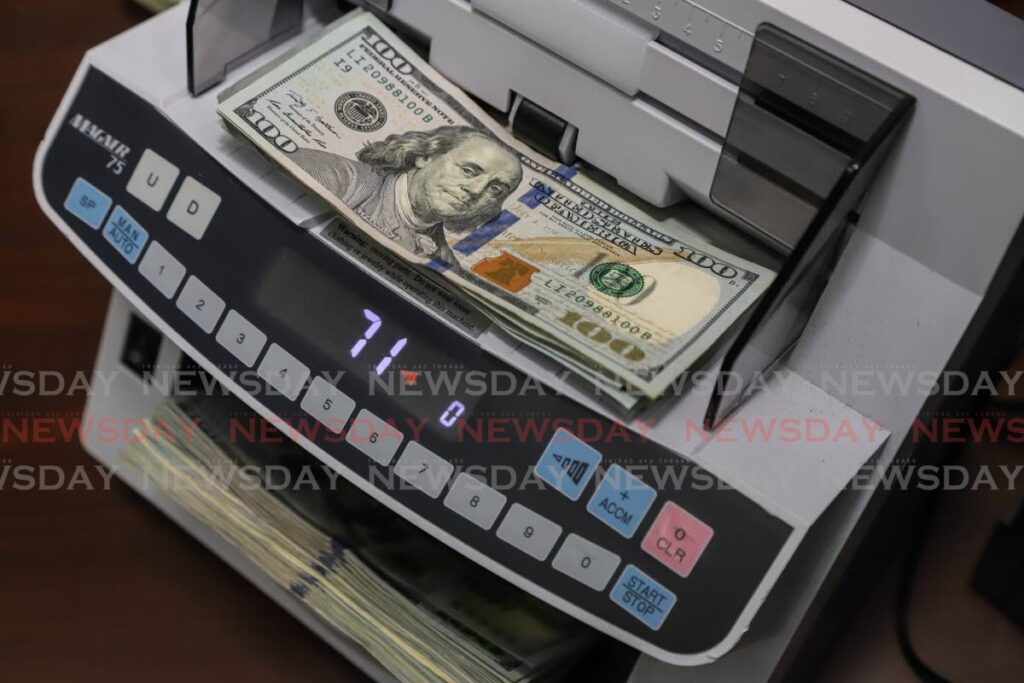TTMA boss: Scarce forex being used to import donuts

PRESIDENT of the TT Manufacturers Association (TTMA) Roger Roach believes Trinidad and Tobago’s foreign exchange (forex) supply situation is not quite at the stage of crisis, but “critical,” with some responsibility falling on consumers and importers of non-essential goods.
Roach spoke on a virtual panel discussion hosted by the University of the West Indies (UWI) St Augustine Campus’s Trade and Economic Development Unit on June 21.
Roach took issue with the choice of some purchases by local businesses, saying, “When you look at the items, we importing Dunkin’ Donuts, we importing food items from abroad, I mean total non-essential items. And when I talk to new manufacturers, all I ask them to do is to look at the import data.
“If you want to start manufacturing, you’re quite right; start with your home market. Look at the things we import. Look at the gaps in the market and start right there. You can build a business just by import substitution. I did it for myself.”
Roach, CEO of Lazuri Apparel Ltd, referenced his business, saying, “When I went into clothing manufacturing, people thought I was crazy because you could get all these products from China.”
He said after opening business in 2020, the company manufactures for large local companies and exports to the Caribbean – a segment that people thought was dead.”
Responding to a question from moderator Vivek Charran, chairman of the Confederation of Regional Business Chambers, Roach said, “I think it’s critical (in the sense) that if this forex window were to be taken away, would we be as successful as we are today? For instance, government programmes are not guaranteed.”
Roach encouraged small and emerging manufacturers to join the association and to use the programmes available to them, namely the Forex Facility, a product offered by Eximbank to assist businesses with purchasing raw materials, shipping, trade financing and loans in US currency.
“We’re saying, one day if it’s not available, what do we do then? Companies have to earn their own foreign exchange,” Roach said.
Charran said there is a public perception outside the manufacturing sector that successful businesses are saving their forex, rather than utilising it for business use.
He asked Roach to clarify whether forex-earning businesses are afforded “two bites of the cherry.”
Roach said that is not the case, noting that 90 per cent of forex is earmarked for small and medium enterprises.
“If you’re a net earner of foreign exchange, you don’t have access to the facility, and believe me, we know who the net earners of foreign exchange are in the country and they cannot access the Eximbank facility.”
He said some medium enterprises earn forex but not enough to purchase their raw material needs.
“This forex situation has been going on for years,” said Roach.
“I remember more than ten years ago, once you needed forex, you had to go into this queue at the bank.”

He said 15 years ago one would queue at the bank for $20,000 and eventually get it.
“Now, you go into a queue and they say they getting a release (of forex) next week.”
He said if one requests to purchase US$10,000 or $20,000, they may wait a week to receive US$2000 even if “you have an invoice that says I need to send $20,000 to my supplier.”
Roach said while US currency circulates in the system, “there may be a disproportionate allocation of the US in the system.
“There are certain segments in the retail sector…just importing items into TT, selling it in TT and seem to be getting an inordinate supply of US dollars in a segment that has a glut in the market.”
He said the global market has changed, largely because of e-commerce.
“Everything that’s available in a mall in TT, you can buy it online and there are some people who sit in their house with a credit card and purchase online and when you purchase online, that credit card has to be settled immediately to Mastercard or Visa or whatever it is.”
He noted the growing multi-billion-US-dollar settlements by credit card companies for personal foreign purchases.
Last September, the Ministry of Finance issued a media release, saying, “It is estimated that credit card sales using foreign exchange will reach US$2 billion in 2023, which is 45 per cent higher than the pre-covid level of US$1.38 billion in credit card sales using foreign exchange in 2019.”
The ministry requested that the Central Bank inject US$50 million into the banking system on a one-off basis (in addition to the usual fortnightly injection) which it did on September 19, 2023.

Comments
"TTMA boss: Scarce forex being used to import donuts"